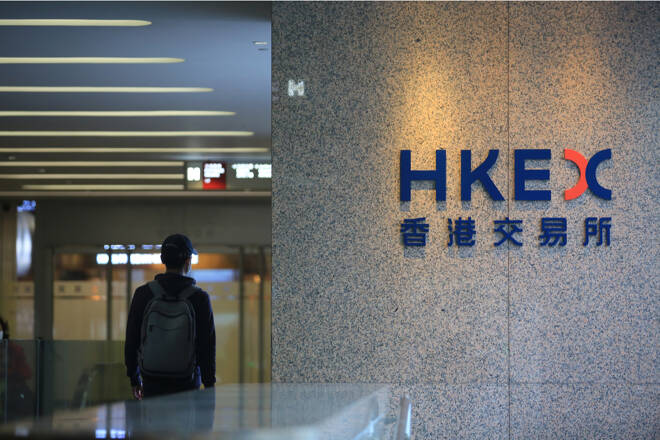Advertisement
Advertisement
Hang Seng Index, Nikkei Index, ASX 200: HSI Slips as China Data Looms
By:
Key Points:
- The Asian equity markets had a mixed start on Tuesday, July 9. Notably, the Hang Seng Index bucked the market trend with early losses.
- Real estate stocks dragged the Hang Seng Index into negative territory on Tuesday morning.
- Hopes of a more dovish Fed Chair Powell supported gains for the ASX 200 and Nikkei 225.
On Tuesday, July 9, investor focus shifted to the US Federal Reserve. Investors awaited testimony from Fed Chair Powell amidst rising hopes of a September Fed rate cut.
US Equity Markets: US Consumer Inflation Expectations Support Fed Rate Cut Bets
On Monday, July 8, US consumer inflation expectations attracted investor attention, falling from 3.2% to 3.0% in June. Consumers could delay purchases if they believe prices will decline. A downward trend in consumer spending could dampen demand-driven inflation and allow the Fed to cut interest rates. The June figures bolstered investor bets on a September Fed rate cut.
For context, US consumer inflation expectations fell for the second consecutive month to 3.0%. In June 2022, consumer inflation expectations stood at 6.8%.
The consumer inflation expectation numbers preceded the US CPI Report (Thurs), which could cement a September Fed rate cut. The Fed considers consumer inflation expectations a predictor of US headline inflation.
According to the CME FedWatch Tool, the probability of the Fed holding interest rates steady rose modestly from 22.3% to 22.9% on Monday.
On Monday, the Nasdaq Composite Index and the S&P 500 advanced by 0.28 and 0.10%, respectively. The Dow slipped by 0.08%.
Overnight gains for the Nasdaq Composite Index and S&P 500 set the tone for the Tuesday Asian session. However, economic indicators from the Asian region also needed consideration.
Aussie Consumer Confidence Tests Bets on an RBA Rate Hike
The Westpac Consumer Confidence Index slid by 1.1% to 82.7 points in July. Downward trends in consumer confidence may reduce consumer spending and dampen demand-driven inflation. A softer inflation outlook could ease pressure on the RBA to raise interest rates.
Previously, the Aussie Monthly CPI Indicator rose from 3.6% to 4.0% in May, fueling speculation about an RBA rate hike.
For perspective, the Westpac Consumer Confidence rose to 86.0 points in February 2024 before retreating. Investor jitters about elevated inflation and the threat of an RBA rate cut affected consumer confidence.
IG Market Analyst Tony Sycamore commented on the consumer confidence report, saying,
“No surprises here as higher-than-expected inflation and the threat of an additional RBA rate hike offset the positive impact of the stage 3 tax cuts.”
Hang Seng Index Bucks a Positive Tuesday Morning Session
Meanwhile, the Hang Seng Index declined by 0.42% on Tuesday morning. Real estate stocks were under intense pressure.
The Hang Seng Mainland Properties (HSMPI) slid by 5.47%, with investor caution affecting buyer demand for real estate stocks. Upcoming inflation numbers from China on Wednesday, July 10, will signal any shift in the demand environment as the Communist Party of China Third Plenum looms.
Tech stocks also struggled, with the Hang Seng Tech (HSTECH) Index falling by 0.56%.
Baidu (9888) slid by 1.45%, while Alibaba (9988) fell by 0.28%. Tencent (0700) was flat.
However, the Mainland China equity markets reversed their losses from Monday. The Shenzhen Composite and CSI 300 advanced by 0.53% and 0.17%, respectively.
Nikkei Gains as the USD/JPY Returns to 161
The Nikkei Index rallied 1.17% on Tuesday morning. A stronger USD/JPY drove buyer demand for Nikkei Index-listed stocks. The USD/JPY rose to a Tuesday morning high of $161.130.
Tokyo Electron Ltd. (8035) jumped by 3.39%, with Sony Group Corporation (6758) rising by 3.27%. Softbank Group Corp (9984) gained 2.31%.
ASX 200 Rises on Easing Bets on an RBA Rate Hike
The ASX 200 Index gained 0.75% on Tuesday morning, tracking the S&P 500 and Nasdaq Composite Index. Aussie consumer confidence numbers for July tempered speculation about a Q3 2024 RBA rate hike, with bank stocks among the front-runners.
ANZ Group Holdings Ltd. (ANZ) and Westpac Banking Corp. (WBC) rallied by 1.25% and 1.29%, respectively.
Tech stocks also moved higher. The S&P/ASX All Technology Index was up 0.60%.
In conclusion
Rising bets on a Fed rate cut and overnight gains for the S&P 500 and Nasdaq supported buyer appetite for riskier assets. However, investor caution before crucial data from China pressured HK-listed real estate stocks.
With crucial data releases this week, investors should remain vigilant. Closely monitor the news wires, real-time data, and expert commentary to manage trading strategies accordingly. Stay informed with our latest updates and insights to navigate the Asian equity markets effectively.
About the Author
Bob Masonauthor
With over 28 years of experience in the financial industry, Bob has worked with various global rating agencies and multinational banks. Currently he is covering currencies, commodities, alternative asset classes and global equities, focusing mostly on European and Asian markets.
Advertisement
